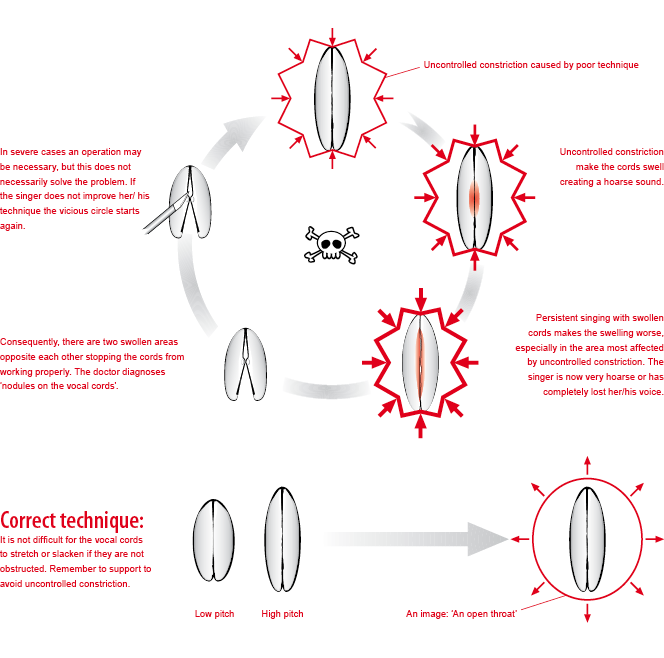
Every time the vocal folds collide, there is some loss of cells from the superficial layer of the vocal folds. Here is the deal: your vocal folds come together hundreds of times every single second when you produce voiced sounds.

In this case, you are not giving your voice a chance to recover properly.
#CAUSES FOR RASPY VOICE PROFESSIONAL#
This is a very typical problem for professional voice users, such as singers, actors, presenters, sales people, teachers and especially music teachers, or anyone whose voice is essential in their daily jobs. Vocal overuse happens when vocal folds work more than they are conditioned to. You may be overusing your vocal instrument. Now, let’s say that you have good vocal technique but you still get hoarse after speaking or singing. I made a video on this topic and you can watch it by clicking this link. It is a warning sign that should be taken seriously. If you get hoarse after or during singing, your body is telling you that you are not using your vocal instrument in a healthy way. As a result, chronic hoarseness often develops.Īdditionally, another common scenario is using incorrect vocal technique when singing. After the sickness goes away, you continue using this effortful way of voice production, which leads to more hoarseness and vocal fold swelling. In order to produce good quality voice, you need to exert more vocal effort and maybe push your voice a little bit more than normal. For example, you get a cold or flu but you continue speaking or singing. This is a very common scenario when talking or singing while sick. For example, if you push your voice to increase loudness, if you engage muscles unnecessary for voice production, you are straining your voice beyond its normal limits.

When you sing or speak with faulty vocal technique, you can also cause vocal fold swelling and hoarseness. During these behaviours, your vocal folds bang against each other in a very abrupt and forceful way, which causes their damage and swelling. Examples of such behaviours are yelling, screaming, excessive coughing or throat clearing. Vocal abuse is any vocal behaviour with high impact on the vocal folds. So, here are 5 common causes of hoarse voice that lasts longer than 2 weeks: Cause #1 Vocal Abuse, Misuse or Overuse

For example, acute hoarseness, that lasts less than 2 weeks, is most frequently caused by an acute infection, such as common cold or flu, and luckily this type of hoarseness is not serious and goes away after the infection subsides.īut chronic hoarseness is a different story. So, if you’ve had hoarse voice for months, it means you have chronic hoarseness and it’s time to take action! Hoarse Voice for Months: Causes Chronic hoarseness lasts more than two weeks. The changes can be mild or very severe, they can come and go or stay for the whole day.Īcute hoarseness lasts less than two weeks. You may have no pain or it may be painful to talk. When your voice is hoarse, it means that you may sound breathy, raspy, strained, or you may have trouble speaking or singing loudly or in higher vocal ranges. The term hoarseness generally describes abnormal voice changes. I am going to tell you about 5 most common causes of chronic hoarseness.Īnd I will also tell you the very first step you need to take on the way to recovery.

Have you been experiencing hoarse voice for months?


 0 kommentar(er)
0 kommentar(er)
